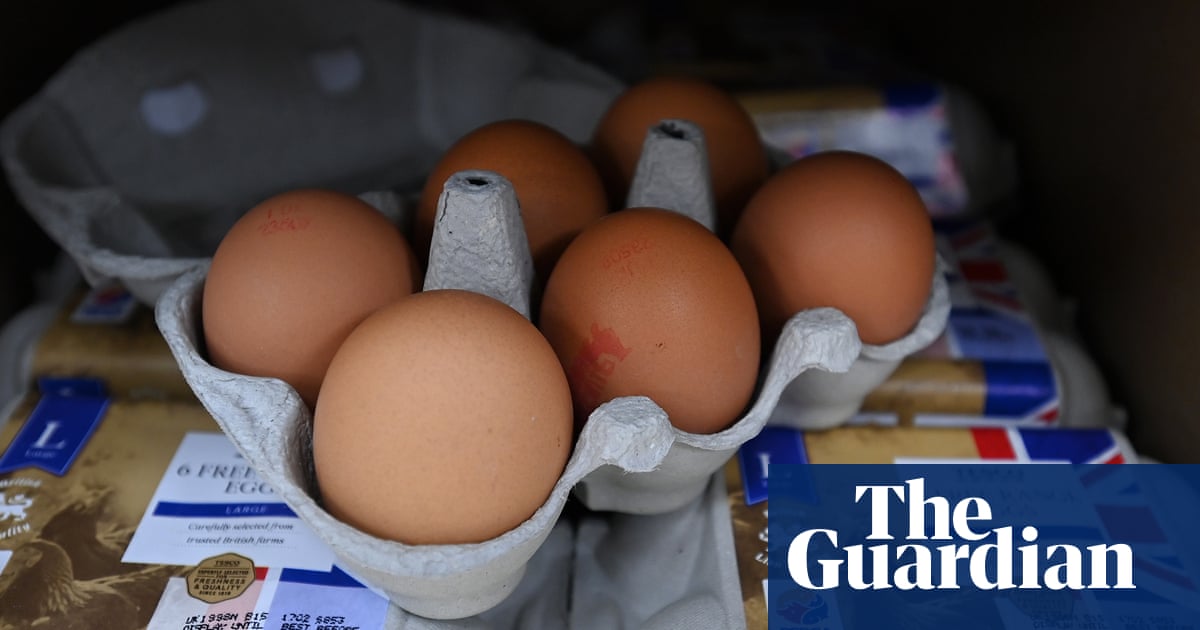
Supermarkets are under “increasing pressure” to keep shelves fully stocked, retail industry leaders have warned as the growing havoc wreaked by the “pingdemic” continues to force thousands of workers to self-isolate.
With shops in some areas suffering shortages, and firms in sectors from petrol stations to the postal service affected by absences, the government is being urged to include supermarket staff, lorry drivers and other frontline workers on a list of those exempted from self-isolation rules.
The government has announced that certain industries will be able to apply for staff exemptions, allowing critical workers who are “pinged” by the NHS test-and-trace app to return to work after a PCR test and undertake daily lateral flow tests, rather than self-isolating for 10 days.
But it has yet to publish a list of which sectors can take part in the scheme and there will not be a list of critical workers exempt from automatic self-isolation; instead, exemptions will be considered on a case-by-case basis.
With the number of those expected to be granted exemptions relatively small, bosses are concerned and frustrated that thousands of workers will continue to have to self-isolate when pinged.
Andrew Opie, director of food at the British Retail Consortium trade body, said staff shortages could have an impact on opening hours and shelf stacking.
“The ongoing ‘pingdemic’ is putting increasing pressure on retailers’ ability to maintain opening hours and keep shelves stocked. Government needs to act fast,” said Opie. “Retail workers and suppliers, who have played a vital role throughout this pandemic, should be allowed to work provided they are double vaccinated or can show a negative Covid test, to ensure there is no disruption to the public’s ability to get food and other goods.”
Grocery chain Iceland is aiming to recruit 2,000 spare staff to help cover absences. The retailer said it had been forced to reduce trading hours and even shut some stores as it experienced staff shortages caused by workers receiving notifications from the NHS test-and-trace app.
Richard Walker, the head of Iceland, said that a handful of outlets had been forced to close after more than 1,000 workers – just over 3% of the group’s total – had been asked to self-isolate after being pinged by the app.
He said the problems were patchy – with some stores experiencing much higher vacancy rates than others – while the number of people having to isolate was “growing about 50% week on week, and that was really alarming”.
Walker called on the government to adjust the app or self-isolation rules urgently, ahead of planned changes on 16 August. “Supermarkets need to focus on feeding the nation not writing to government departments,” he said. He said that about 96% of those alerted by the NHS app who worked for Iceland did not test positive for Covid-19.
There were also reports on social media of supermarkets in some areas running out of basic supplies including milk, eggs, bread and rice.
Tesco said it had run out of bottled water in its warehouses, while the Co-op said supplies at “a large majority” of its stores had been disrupted to “due to the impact of Covid/isolation of colleagues”.
A spokesperson said: “This is a short-term but significant impact and has impacted our ability to supply stores. These issues are impacting a large majority of Co-op stores.”
The Daily Telegraph also reported that police forces across the country were being affected. In Dorset, a third of control room staff were off work after being pinged or having tested positive for Covid.
The Cleveland police and crime commissioner, Steve Turner, warned the public to expect longer response times to calls. He said: “We suddenly find ourselves cancelling rest days and cancelling leave and bringing officers in from other shifts to cover where we have got the gaps. However, our call times will go up, we will miss some calls we would normally pick up because we have less resilience in the call centre.”
The warnings come as the British Meat Processors’ Association (BMPA) said some plants had already been hit by staff shortages of up to 16% even without the impact of the pingdemic.
“On top of the underlying worker shortage, we’re also hearing from some members that between 5% and 10% of their workforce have been ‘pinged’ by the [health service] app and asked to self-isolate,” said the chief executive of BMPA, Nick Allen.
The shortage of workers affected the meat products that require more labour to produce, he said, meaning those lines would be the first to be cut.
The self-isolation problem is adding to shortages of delivery workers, especially HGV lorry drivers, caused by a mix of Brexit, Covid and changes to tax rules.
BP said industry-wide lorry driver shortages were causing temporary fuel supply issues which saw a “handful” of its UK sites close temporarily. The oil giant’s supply chain had also been affected by the closure of a fuel distribution terminal because of Covid isolations among staff last week.
However, BP told the BBC the “vast majority” of shortages were “resolved within a day”.
Royal Mail said that, in a “limited number of areas”, services were being disrupted due to Covid-related absences.
Leading retailers say absence rates are currently at about 10%, which is far lower than at the peak of the pandemic last spring, but difficult to manage as certain stores and product categories are more heavily affected.
Some stores have absence rates as high as 30%, with the north-east and north-west of England worst affected, while key deliveries in certain parts of the country have also been affected.
Surges in demand for fresh fruit, salad and other hot weather staples brought on by the sudden heatwave have also added to difficulties. Unusually high demand in holiday destination areas has also led to shortages as delivery systems struggle to keep up.











